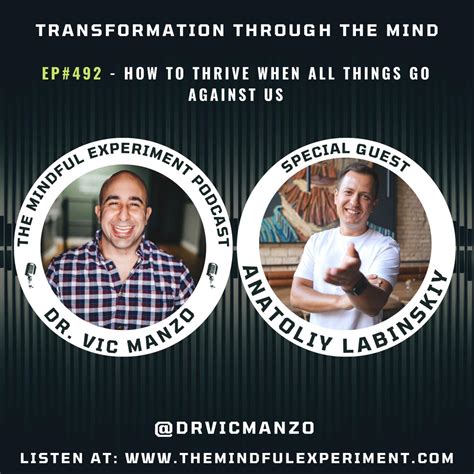In an era where sustainability and intentional living are more important than ever, the automotive industry stands at a crossroads. “Greatmind: How Mindful Consumption Transforms Automotive Choices for a Sustainable Future” delves into the transformative power of mindful consumption within this sector. By exploring the principles of mindfulness and meaningful experiences, this article sheds light on how thoughtful decisions about vehicles and automotive products can align with a purposeful lifestyle. From understanding what constitutes a mindful choice to the broader impacts on our world, we uncover why adopting these practices is crucial for shaping a sustainable and conscious future in automotive consumption.
Join lealhotel.com as we delve deeply into this topic.
1. Why Mindful Consumption in the Automotive Industry
In a world increasingly aware of environmental and social issues, mindful consumption in the automotive industry emerges as a vital approach to addressing these concerns. The automotive sector is a significant contributor to carbon emissions and resource depletion, making it essential to reevaluate how we make choices about vehicles. Mindful consumption encourages a shift from mere ownership to a deeper understanding of the impact of our decisions. It promotes choosing vehicles and automotive products that prioritize sustainability, ethical practices, and long-term value over short-term convenience and status. By embracing mindful consumption, consumers can drive positive change, supporting innovations that reduce environmental footprints and foster responsible production methods. This approach not only benefits the planet but also aligns with a broader movement towards more intentional and meaningful living, ensuring that automotive choices contribute to a more sustainable and thoughtful future.

2. How to Integrate Mindful Consumption
Integrating mindful consumption into automotive choices involves a thoughtful approach to every decision in the vehicle ownership journey. Start by researching and selecting vehicles that prioritize fuel efficiency, reduced emissions, and sustainable manufacturing practices. Consider hybrid or electric options, which can significantly lower your carbon footprint compared to traditional gasoline engines. Evaluate the lifecycle of a vehicle, from production to disposal, ensuring that it aligns with ethical and environmental standards.
Additionally, prioritize brands and manufacturers that demonstrate a commitment to sustainability through transparent practices and certifications. Look for companies that invest in eco-friendly materials and support recycling programs. Regular maintenance of your vehicle also plays a crucial role in mindful consumption, as it ensures optimal performance and longevity, reducing the need for premature replacements.
Incorporate mindful driving habits, such as reducing idling and practicing efficient driving techniques, to further minimize environmental impact. By adopting these practices, you not only contribute to a more sustainable automotive industry but also align your personal values with your choices, promoting a more intentional and responsible lifestyle.

3. What Constitutes a Mindful Automotive Choice
A mindful automotive choice is defined by several key factors that prioritize sustainability, ethical practices, and long-term value. Firstly, vehicles that offer low emissions, such as hybrids or electric models, represent a mindful choice due to their reduced impact on the environment. Choosing vehicles with high fuel efficiency also contributes to lowering carbon footprints and conserving resources.
Additionally, consider the sustainability of the vehicle’s materials and manufacturing processes. Vehicles produced with eco-friendly materials and responsible practices reflect a commitment to minimizing environmental harm. Opt for brands that engage in ethical labor practices and support fair trade.
Durability and reliability are also essential. A well-built vehicle that lasts longer reduces the need for frequent replacements, thus lessening overall resource consumption. Finally, think about the vehicle’s end-of-life impact. Brands that offer recycling programs or take-back schemes for their products contribute to a more circular economy. These elements together create a mindful automotive choice that aligns with a commitment to both environmental and social responsibility.

4. Why Consumers Should Care
Consumers should care about mindful automotive choices because their decisions have a profound impact on the environment and society. By choosing vehicles with lower emissions and sustainable practices, individuals contribute to reducing overall carbon footprints and mitigating climate change. This choice supports advancements in green technology and encourages the automotive industry to prioritize eco-friendly innovations.
Furthermore, mindful consumption promotes ethical labor practices and responsible resource use, fostering a fairer and more sustainable economy. Consumers also benefit from the long-term value of investing in durable, efficient vehicles that save money on fuel and maintenance over time. By aligning their choices with their values, consumers play a crucial role in shaping a more sustainable future, driving positive change, and setting an example for others. This collective effort is essential for addressing global challenges and ensuring a healthier planet for future generations.

5. How Consumers Can Make Conscious Decisions
Consumers can make conscious decisions by adopting a proactive and informed approach to their automotive choices. Begin by researching and comparing vehicles based on their environmental impact, including fuel efficiency, emissions, and the use of sustainable materials. Online resources, reviews, and sustainability ratings can provide valuable insights into which models align with mindful consumption principles.
Consider investing in hybrid or electric vehicles that offer significant reductions in carbon emissions compared to traditional gasoline-powered cars. Additionally, support manufacturers that are transparent about their environmental practices and commitments to sustainability.
Evaluate the total cost of ownership, including fuel savings, maintenance costs, and the longevity of the vehicle. Opt for brands that prioritize durability and offer warranties or maintenance programs to extend the life of your vehicle.
Engage with community initiatives and advocacy groups that promote sustainable transportation practices. By staying informed and making thoughtful choices, consumers can drive positive change in the automotive industry, contribute to environmental conservation, and support ethical practices.

6. What Impact Does Mindful Consumption Have
Mindful consumption in the automotive industry has a profound and multi-faceted impact. Environmentally, it helps reduce carbon emissions and resource depletion, as choosing fuel-efficient or electric vehicles significantly lowers greenhouse gas output and reliance on fossil fuels. This shift supports global efforts to combat climate change and promotes the use of renewable energy sources.
Socially, mindful consumption encourages ethical practices within the automotive industry. By supporting manufacturers with responsible labor practices and transparent supply chains, consumers drive positive change and foster fair working conditions. This also promotes innovation in sustainable technologies, as companies are motivated to develop eco-friendly solutions.
Economically, investing in durable and efficient vehicles leads to long-term savings on fuel and maintenance costs. This approach also reduces the frequency of vehicle replacements, contributing to a more sustainable consumption model.
Overall, mindful consumption shapes industry trends and consumer behavior, creating a ripple effect that encourages broader adoption of sustainable practices and supports a more ethical and environmentally-conscious automotive market.

7. Why the Future Depends on Mindful Consumption
The future of the automotive industry—and indeed our planet—depends on mindful consumption because it addresses critical environmental and social challenges. As global demand for vehicles grows, traditional practices lead to increased carbon emissions, resource depletion, and environmental degradation. Mindful consumption offers a pathway to mitigate these issues by prioritizing sustainability, efficiency, and ethical practices.
By embracing mindful consumption, consumers drive demand for greener technologies and responsible production methods, which in turn accelerates innovation and industry transformation. This shift not only helps combat climate change but also promotes a circular economy where resources are used more efficiently and waste is minimized.
Furthermore, mindful consumption fosters greater awareness and accountability within the industry, encouraging companies to adopt more sustainable practices and improve their social responsibility. As more individuals and businesses commit to these principles, it creates a collective movement towards a more sustainable and equitable future. Ultimately, mindful consumption is essential for ensuring that future generations inherit a healthier planet

Mindful consumption is pivotal in transforming the automotive industry for a sustainable future. By making thoughtful, informed choices about vehicles, consumers can drive environmental and social change, support ethical practices, and promote innovation. Embracing these principles today ensures a healthier planet and a more responsible industry for generations to come.
lealhotel.com